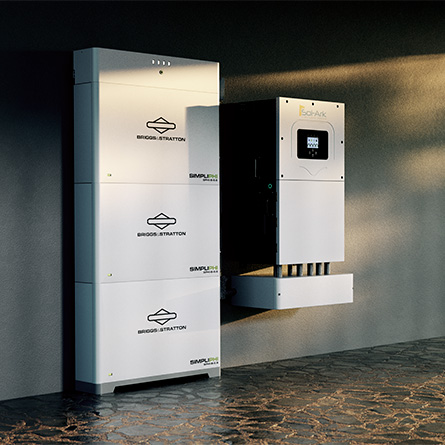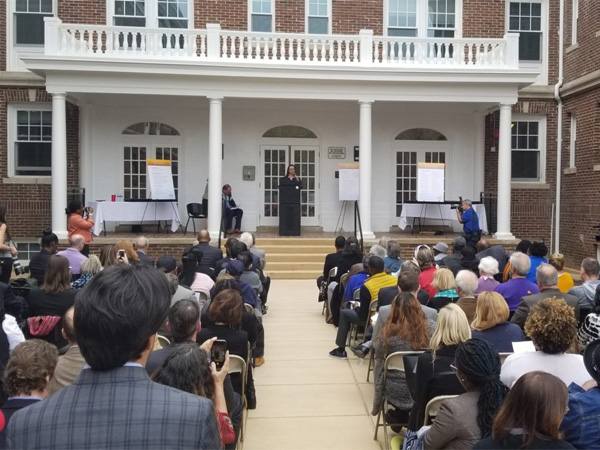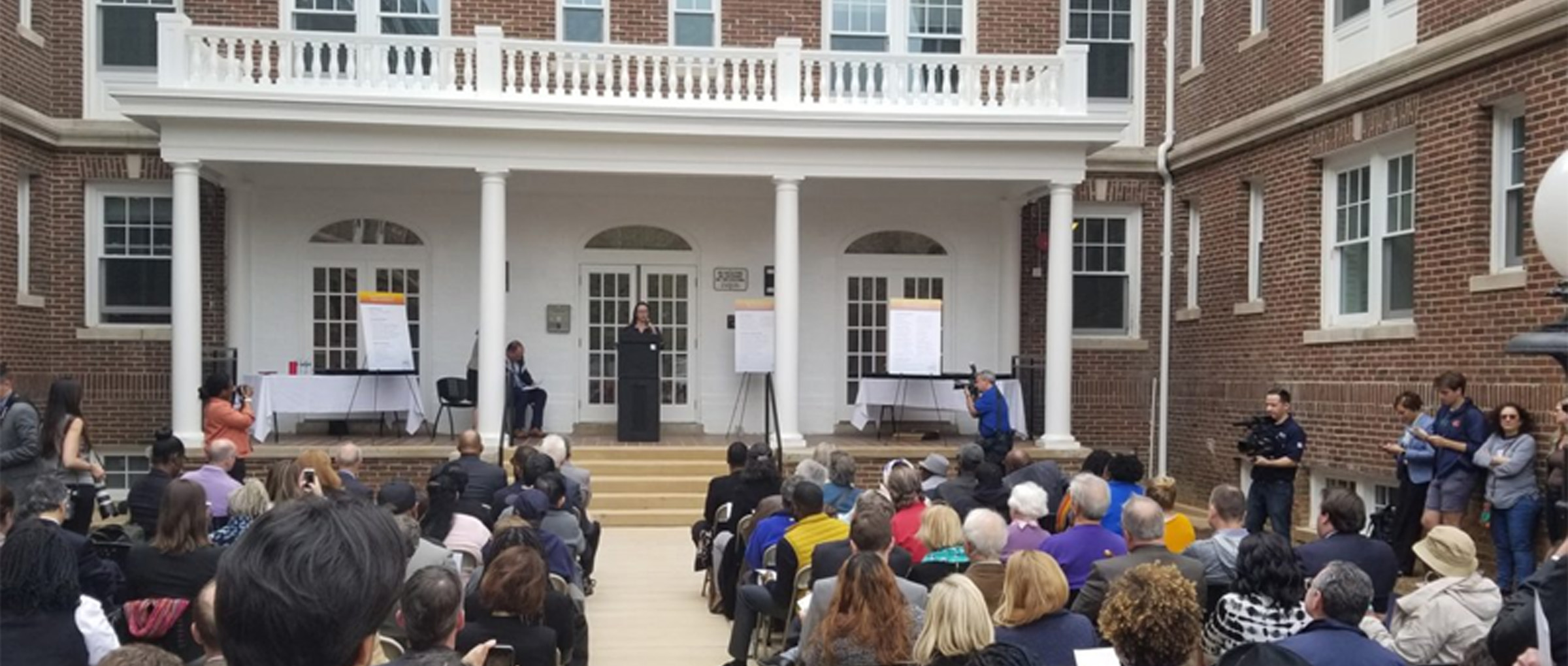A Jubilee Housing preservation project, the Maycroft Apartments in the Columbia Heights neighborhood of Washington, DC, warmly welcomed its first residents in April 2019. All of the apartments are reserved for people who earn 60 percent or less of the area’s median income (AMI), and a majority of units are reserved for people who earn less than 30 percent of the AMI. Jubilee calls this “justice housing,” and former board chair Myra Peabody Gossens says, “What we’re doing is different… We’re really trying to keep the lowest of the low-income people in their communities.”
DC Ward 1 Councilmember Brianne Nadeau and other city officials delivered remarks celebrating the Maycroft and what it means to Columbia Heights.
In addition to 64 affordable housing apartments, The Maycroft features both a Teen Drop-In Center and Family Resource Center, as well as three programs from Martha’s Table: a nationally accredited early childhood education program; the McKenna’s Wagon mobile food van that serves hot meals to people experiencing homelessness and hunger; and a no-cost healthy food market located in the lobby of the building.

Beyond social services, The Maycroft also sets a new standard for sustainability and energy security. The building is certified “Enterprise Green” and will serve as an energy resiliency center.
The building features a roof-mounted 70.2 kWh solar array. Through a partnership with New Partners Community Solar Corp., the generation from the Maycroft array is combined with energy generation from other New Partners Community Solar arrays as part of a city-wide Community Renewable Energy Facility. Tens of thousands of dollars in energy credits will be generated, affording Maycroft residents credits on their electric bills (at no cost) each month for the next 25 years.

Battery Storage partner Bradford Boston of SunCatch Energy is installing 16 PHI 3.5 batteries in the resiliency room, paired with Schneider inverters.
In addition to providing utility bill savings, thanks to a $65,000 grant from Pepco, the solar array has also been paired with an energy storage system to deliver up to three days of emergency power to a communal “resilience room” in the building’s lower level. In the event of an extended power outage due to severe weather or other state of emergency, the solar+energy storage system will island from the grid and function as a microgrid. The resilience room will provide refrigeration for medication, a television and radio connecting residents to emergency information, lighting, and multiple electrical outlets to charge communications devices.
The system offered an ideal solution for the apartment complex because PHI batteries deliver exceptional safety, reliability and longevity. The batteries' cobalt-free lithium ferrous phosphate (LFP) chemistry is environmentally benign, non-toxic and does not pose the danger of thermal runaway and the batteries will provide reliable emergency power for more than ten years.

New Partners Community Solar Co-Founder and President Herb Stevens and his team predict the Maycroft success story will help jumpstart more community solar-plus-storage projects in the district.
Pepco will manage the interface between the PHI batteries and the solar installation, allowing the company to learn more about using this technology in future applications. This is the first such resource in the district and one of the first examples nationwide of a new trend in community-based “solar+battery storage+resiliency” efforts.

“We know that climate change is real, and as leaders in the energy industry, we want to help usher in a clean energy future while doing our part to combat climate change and prepare for a world with more extreme weather and less predictability,” said Donna Cooper, Pepco Region President. “Even as we modernize the local energy grid with devices that are helping to provide the most reliable service in the history of our company, the impact of climate change, natural disasters, and other emergencies that affect the energy grid is becoming more frequent. And these challenges fall most heavily on our low-income residents and neighbors. We are excited about this project and we think this pilot could be a roadmap for others to follow, both in the district and beyond.”
Supplied by City Electric Supply and installed by Sun Catch Energy, the energy storage system includes 16 PHI 3.5 batteries, Schneider Electric Conext XW+ and Midnite Solar combiners.
We are thrilled to have played a role in making this landmark justice housing + environmental justice microgrid project a reality and look to the project as an example of what is possible.

Ready to experience true energy independence?
Request a consultation with a Briggs & Stratton dealer or installer near you by clicking the button below.



